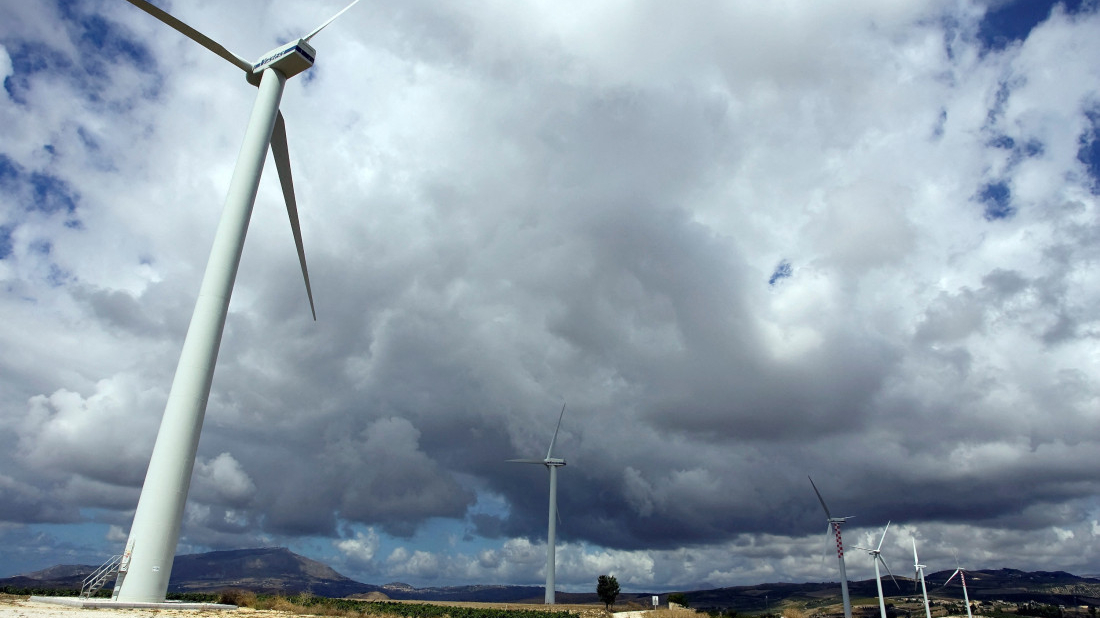AnewZ Morning Brief - 14 February, 2026
Start your day informed with AnewZ Morning Brief: here are the top news stories for the 14th of February, covering the latest developments you need to...

The International Energy Agency (IEA) has stated that the goal to triple global renewable energy capacity by 2030 is within reach. Strong investments in solar, wind, and other renewable sources are driving rapid growth.
A goal to triple global renewable energy capacity by 2030 and cut fossil fuel use is within reach, the International Energy Agency said in a report on Tuesday, but will require a huge push to unlock bottlenecks such as permitting and grid connections.
The report comes as leaders from government and business come together at New York Climate week to try to drive forward action against climate change.
Almost 200 countries at the COP 28 climate summit in Dubai last year agreed to reach net zero emissions from the energy sector by 2050 and pledged to triple renewable energy capacity like wind and solar.
The IEA said the renewable energy goal “is within reach thanks to favourable economics, ample manufacturing potential and strong policies,” but said more renewable capacity by itself would not slash fossil fuel use and reduce costs for consumers.
“To unlock the full benefits of the tripling goal, countries need to make a concerted push to build and modernise 25 million kilometres of electricity grids by 2030… The world would also need 1,500 gigawatts (GW) of energy storage capacity by 2030,” the IEA said.
Countries at COP 28 also pledged to double energy efficiency measures to help curb power use, but this target will require governments to make efficiency much more of a policy priority.
Countries must embed the renewable and energy efficiency goals in their national plans to meet goals set under the Paris climate agreement, the IEA said.
Emissions from the global energy sector hit a record high last year.
Tripling renewable energy capacity and doubling energy efficiency measures to reduce power use could reduced global greenhouse gas emissions by 10 billion metric tons by the end of the decade compared with what is otherwise expected, the report said.
Europe heads into the Munich Security Conference, on Friday (13 February), amid deepening unease over U.S. policy, as President Donald Trump’s hard-line stance on defence, trade and territory fuels doubts about Washington’s long-term commitment to transatlantic security.
“Respected and feared globally,” U.S. President Donald Trump told troops at Fort Bragg on Friday, framing America’s renewed strength as a backdrop to mounting pressure on Iran amid stalled nuclear talks.
Türkiye and Greece signalled renewed political will to ease long-standing tensions during high-level talks in Ankara on Wednesday (11 February). Maritime borders, migration and trade topped the agenda as both leaders struck a cautiously optimistic tone.
Stalled U.S.–Iran talks and mounting regional tensions are exposing a growing strategic rift between Washington and Tel Aviv over how to confront Tehran, political analyst James M. Dorsey says, exposing stark differences in approach at a critical moment.
Dubai-based global ports operator DP World said on Friday that its long-serving chairman and chief executive, Sultan Ahmed Bin Sulayem, has stepped down following mounting pressure linked to alleged ties to disgraced financier Jeffrey Epstein.
The administration of U.S. President Donald Trump on Thursday (12 February) announced the repeal of a scientific finding that greenhouse gas emissions endanger human health, and eliminated federal tailpipe emissions standards for cars and trucks.
Tropical Cyclone Gezani has killed at least 31 people and left four others missing after tearing through eastern Madagascar, the government said on Wednesday, with the island nation’s second-largest city bearing the brunt of the destruction.
Rivers and reservoirs across Spain and Portugal were on the verge of overflowing on Wednesday as a new weather front pounded the Iberian peninsula, compounding damage from last week's Storm Kristin.
Morocco has evacuated more than 100,000 people from four provinces after heavy rainfall triggered flash floods across several northern regions, the Interior Ministry said on Wednesday.
Greenland registered its warmest January on record, sharpening concerns over how fast-rising Arctic temperatures are reshaping core parts of the island’s economy.
You can download the AnewZ application from Play Store and the App Store.

What is your opinion on this topic?
Leave the first comment